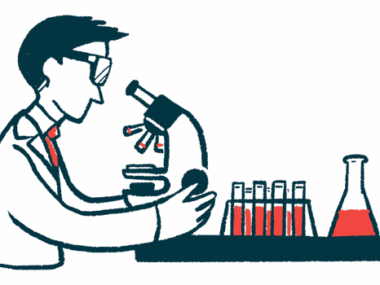ARD-101 Phase 3 trial expands to PWS patients as young as 10
Investigational therapy's ability to address excessive hunger being evaluated
Written by |

Aardvark Therapeutics has amended the protocol for the Phase 3 HERO clinical trial testing ARD-101, its investigational oral therapy for excessive hunger associated with Prader-Willi Syndrome (PWS), to include patients as young as 10 years old.
“Expansion of the Phase 3 HERO trial to include children 10 years of age and older will allow us to reach a larger segment of the PWS patient population to potentially serve more patients in need,” Tien Lee, MD, Aardvark’s founder and CEO, said in a company press release.
Plans to expand the trial’s minimum age of eligibility to include children younger than 13 were initially announced in August and agreed upon by the U.S. Food and Drug Administration (FDA). They were “driven by support from the PWS community, alongside historical data showing that younger patients are more likely to benefit from early intervention,” Lee added.
HERO (NCT06828861) is evaluating the safety and efficacy of ARD-101 against a placebo in up to 90 PWS patients with excessive hunger, or hyperphagia. It is currently enrolling participants at sites across the U.S., with other locations planned worldwide.
“We look forward to our [top-line] data readout for this potentially pivotal trial [between July and September] of 2026,” Lee said. A pivotal trial is a study designed to support a potential request for the therapy’s approval, should results be positive.
ARD-101 activates bitter taste receptors in the gut
Hyperphagia, characterized by an intense, persistent sensation of hunger, is a hallmark of PWS, a rare condition caused by genetic abnormalities affecting chromosome 15. Starting around the age of 8, children with PWS struggle to control their food intake, which can lead to obesity, and may display extreme food-seeking behaviors.
ARD-101 is an investigational oral therapy that works by activating bitter taste receptors in the gut, thereby stimulating the release of hormones that signal a feeling of fullness to the brain. Acting mainly through the gut, the therapy aims to reduce appetite and control related behaviors while minimizing side effects elsewhere in the body.
The FDA granted ARD-101 orphan drug designation and rare pediatric disease designation for PWS, intended to expedite its clinical development and regulatory review.
Data from a previous Phase 1 trial involving 42 healthy adult volunteers demonstrated that ARD-101 was safe and well-tolerated at all doses tested.
Phase 2 study results reflected meaningful reduction in hyperphagia
A Phase 2 study (NCT05153434) then tested different doses of ARD-101 in 18 adolescents and adults with PWS. Participants received the treatment for 28 days, or nearly a month.
Results showed that caregivers reported an average 8.5-point drop on the Hyperphagia Questionnaire for Clinical Trials (HQ-CT), reflecting a meaningful reduction in hyperphagia. Participants also exhibited favorable changes in body composition, including a 1.5% drop in body fat and a more than 2% gain in lean muscle mass.
In the HERO trial, participants are being randomly assigned to receive either ARD-101 or a placebo for 12 weeks, or about three months. ARD-101 will be administered at 200 mg twice a day for the first week, 400 mg twice daily for the second week, and 800 mg twice a day for the remaining 10 weeks.
The study’s primary goal is to examine changes in HQ-CT scores over the 12-week period. Secondary goals include changes in other disease measures, including the Caregiver Global Impression of Severity and the Clinical Global Impression of Severity for Hyperphagia. Patients/caregivers will also keep a daily diary.
Those who complete HERO will have the option to join a long-term open-label extension study (NCT07197034), either to start or continue treatment with ARD-101 for up to a year.







